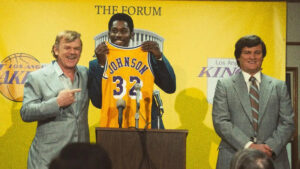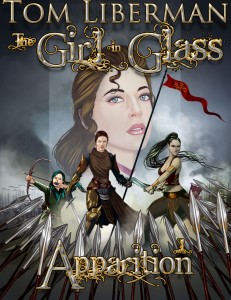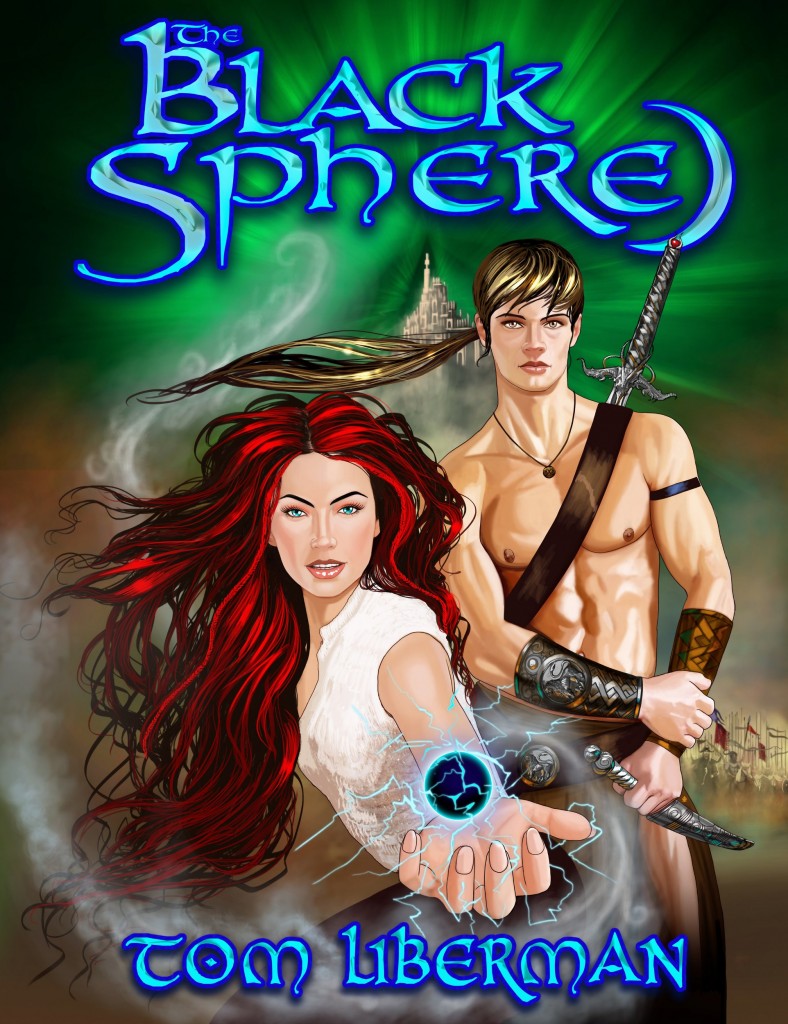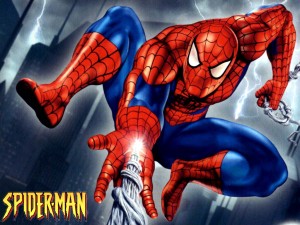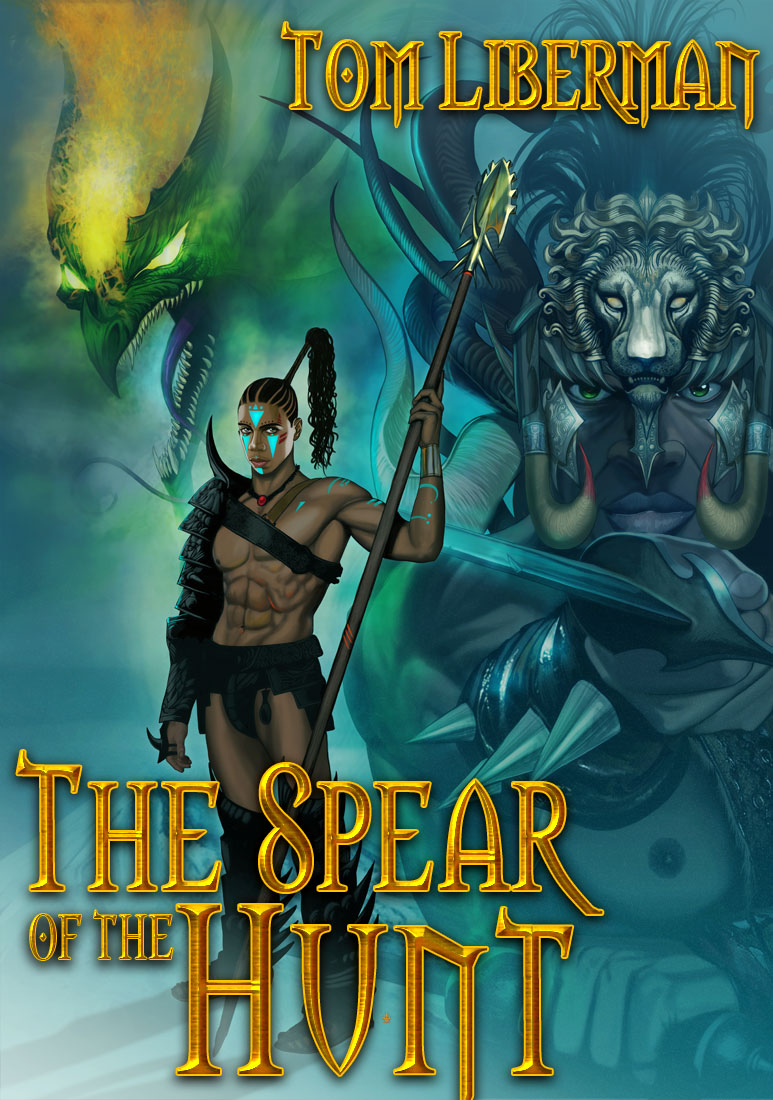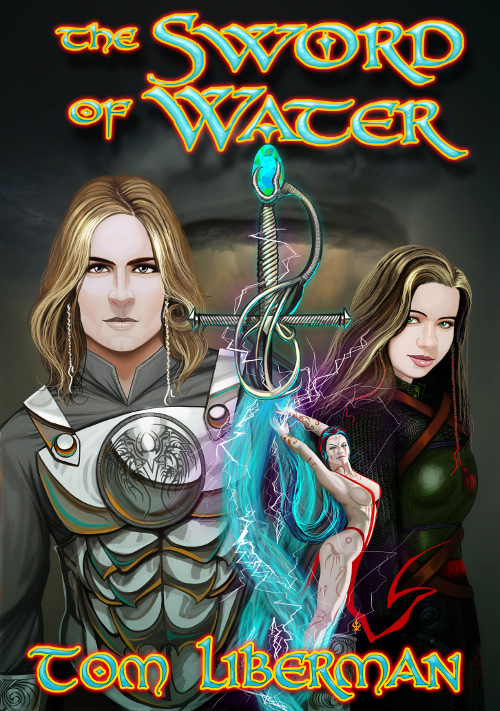By Tom Liberman
Copyright 2020
The sailors lined up on the aft deck as the bursar doled out pay accumulated over the long journey, “Coin or days?” he said to the young man in front of him. The paymaster wore a long black cloak against the brisk breeze of the great Channel Bay that was the largest in the nation of Sea’cra.
“Coin,” said the young man with a large grin as he looked back at the que where a dozen other youngsters cheered loudly. He also wore a thick wool coat although with the collar down, seemingly oblivious to the icy gale that swept across the harbor.
“Good on you,” said the bursar with a wide grin and counted out several large golden coins and added some silver to the mix before putting it in a little pouch. “Spend it all quick and come back in six weeks after we’re fitted out.”
“You don’t have to tell me,” said the lad nodding his head and reaching between his legs for a quick grab. He winked at the others behind him, “An eight-month sail makes a lad hungry and for more than food!” He turned and raised the pouch over his head with a wild yell. “Come on boys, the harbor of Sea’cra awaits, delights to tempt even the most holy soul. Coins! Coins!” As he yelled out, he spotted an older sailor waiting patiently near the end of the line, his hair was still dark but his face showed years at sea. “Come now, Gedder! Join us for one night at least, take some coin. Live a little, join us, you old tar.”
The sailor smiled ruefully and pulled up the collar a threadbare jacket, patched at the elbows and frayed so badly it looked ready to fall off, “Next time.” His voice was clear, strong, and firm although his face was gaunt with sunken cheeks.
“All right, all right, old Gedder No Fun it is. You took my watches in the hole, you gave me your rum rations. Come on, one tumble at the old Anchor and Dragon at least, I’ll buy you a whore I will. She won’t be the prettiest but she’ll do you right, come now. Take your days for the Merchant Executors but I’ll buy you a girl, I will. Meet us there, after you’ve bought off your days.”
Gedder waved at the young man and nodded his head gently as the boys continued to move along in line, taking their coin. Soon he was the last to reach the paymaster; as the younger lads roared off to the city along with some of older sailors and even an officer or two.
“Days then, Aaronson?” said the bursar as Gedder came to the front.
“Days,” confirmed Gedder with a nod of head.
“Not even ninety days for every ten coin? Eight months at sea, no rum, skipping a meal each day, taking the worst watches,” the man said looking down at the log in front of him. “You’ve got a lot of days, old friend. A lot of days. Just a bit of coin, a bit of fun? It can’t hurt. A new coat, a night in a good bed at least. A chicken dinner.”
Gedder shook his head and repeated himself, “Days. Just days.”
“You know, Gedder,” said the bursar shaking his head. “If you keep this up, I do believe you’ll actually pay off the family debt, you’ll be a free man. I’ve seen it done once or twice; I have. Well, I’ve heard of it at least.”
“What other choice is there?” asked Gedder quietly. “Take on more debt? Add to what my grandfather left my father? More days? Thousands of days. Tens of thousands? Enough is enough, my friend.”
“How many days do you still owe the Merchant Executors?”
Gedder shrugged, “You never know, they add on for my brother, my father’s dead, thank the Gods so it stopped adding up from him. My sister married so that’s off my shoulders as well but they never give you an accurate account, do they?”
The bursar shook his head as he took a thick piece of parchment out from a little box next to where shining piles of coins sat, “Here you go. That’s a lot of days, Gedder. A lot of days. Mind the alleys, the docks ain’t safe, but you know that. A cutthroat will kill for days just as well as coin. Plenty of folks take days in exchange for services, though it ain’t rightly legal, they still do it. You got your knife with you?”
Gedder nodded and put his hand to the smooth handle of the blade on his belt, “I’ve got my knife and my wits. No rum for me. I’ll be careful.”
“Captain wants to see you,” said the bursar with a look up to the bridge above the wheelhouse.
“About?”
The man shrugged, “Do I know what the officers want?”
Gedder smiled, “You probably do but I won’t ask you to let on. You’re a good fella, always treated me right. Maybe you’ll pay off your debt someday if you keep that cushy job of yours. Plenty of coin and days for a bursar.”
“Never, but I’ve kept the accounts fairly square, won’t be passing more along to my sons than me dad did to me. Fair is fair. Now, go on up and see the captain. Maybe he’ll have something good to say. All the officers ain’t bad, ain’t all of them work for the Merchant Executors. Do their bidding for more coin or whatever bribes they offer. Some of them is good men, the captain, he’s a fair one.”
Gebber turned and looked at the bridge as he tucked the heavy parchment into a narrow slit in his waistband and secured it with a thick button. A moment later he knocked on the door to the bridge, “Gedder Aaronson, cap’n. Bursar said you wanted to see me.”
“Come in,” came the voice from beyond the door.
Gedder opened the door and saw the captain standing by a large desk where portraits of a woman and some small children rested. He turned to face Gedder and smiled quietly.
“Aaronson,” he said with a smile and nod of his head.
“Cap’n.”
“Were to refit. Three months at least, despite what they’re telling the sailors.”
“Yes, cap’n.”
“I’d like you to stay aboard, you’re the best sailor on the ship. Saved the life of more than one man, but I can’t pay you unless you take a promotion. I can only offer you a commission as a midshipman, but it’s a big raise from the lower decks.
“I’m awful old to be a midshipman, begging your pardon, cap’n.”
“Damn it, Gedder. You’ve been on five trips with me now. Five. More than any of my officers even. You’ve taught hundreds of lads how to tie a knot properly, run up a sail, coil a rope, swab the deck. You’re a born leader but you take the worst jobs.”
“Days, cap’n, days.”
“I know you want to pay off your debt, hellfire, I’d pay off your debt just to make you a third mate if the Executors didn’t have rules against it. I’ve given you a plus thirty days for this tour, it’s the most I’m allowed. Damnit, gods be damned, I know you can’t sit ashore for three months with no coin in your pocket, but I don’t have a job to offer, we’re to pay off the entire crew. Only good lads from good families to maintain the ship.”
“Good lads from good families.”
“Neither good lads nor good families, the lot of them. I’ve had a hundred of the spoiled brats foisted off on me. They’ve killed good men, I’ve seen it. Not directly with a knife but with stupidity, ignorance, incompetence. I want good sailors aboard my ship, good men. I know taking a commission is another thousand days but that’s just three years and the pay is better. You’ll have a good coat, stay at a warm inn at port, not have to work every second you’re ashore. Drink rum at the officer’s mess, by god. It’s worth the days and then some.”
“Isn’t though, cap’n,” said Gedder firmly. “It just is not. Not for me at least. I want to be free of my family debt, free to do what I want, free to lead my own life. My own decisions. My own … just my own.”
“What do you want to do? All you know is sailing. You’ll ship out on another vessel even if you somehow manage to pay off the debt.”
“True,” said Gedder with a nod and a smile as he looked down at the deck beneath their feet. “It’s all I know, since I was a lad even. It’ll be me though, deciding to do it. Not the Executors with their tallies.”
“They’ll find a way to add more days, somehow, they will. Damnit all, Gedder. They find a way. I’ve seen it before. Good men, ruined by the Executors for no good reason other than it gave them a laugh or some stupid wager, or maybe even a wife or daughter. They’ll burn down your family’s house, add five hundred days. They’ll claim your brother stole something, hell, they’ll take his job away from him so he has to steal to feed his family. They’ll make up some crime, add days. Thousands of days, who knows?”
“They don’t care that much about me, cap’n,” said Gedder shaking his head with that same little smile. “I’m just a sailor. Been a sailor for twenty some-odd years. Don’t know me but from a line in a ledger somewhere. Just a bunch of scribbles, that’s all I am to them, that’s all I aim ever to be, at least until I’m free of them, clear of their accounts. Then maybe they’ll know my name, yes, maybe then. But then there won’t be a thing for them to do about it.”
“You’d be a captain. Captain Aaronson, how does that sound? If you just let me help you. Now, I’m not pretending it’s all out of generosity, like I said, you’re the finest sailor with whom I’ve ever had the privilege to serve. It’s for the good of my ship, of my men, of me. Let me help you, it’s just a few more years and then you’d be truly free.”
Gedder shook his head yet again, “I know you mean well, cap’n. I know you do and I don’t mean to insult you by saying no. I don’t want the Executors to know my name, not even it means I’m a captain of Sea’cra. No, that I’ll not be. Maybe a captain someday, I have dreams too, when I’m washing out the bilge, no food in my belly, I dream too. But not to serve this corrupt nation, no, not that. To serve myself. That’s what I aim to do.”
The captain nodded his head, “I had to ask, old friend. If you’re in port in three months, you’re welcome back aboard. If not, maybe you’ll be a captain someday, a free captain. Maybe I’ll come to you, looking for work. You’ll take me on?”
Gedder nodded, “That I will, cap’n. I served a lot of captains over the years, from back when I was a boy on the old Sunsprite. The captain was an old drunk, liked to pick us by lot and have us bent over the railing and beat, every Sunday, for our spiritual well-being. Between you and me, he liked the backside of a young boy exposed to the sun more than anything. You’re a good captain, if I’m ever free, you’ll have a place aboard my ship.”
“Fair enough, Aaronson. I fear this is goodbye then,” said the captain with a nod of his head and extended a hand.
“I fear so, cap’n,” said Gedder taking the hand for a firm shake. “I fear so.”
“Good fortune.”
“And to you, cap’n. To you the same.”
Gedder saluted, left the bridge, made his way down the ladder to the main deck, over to the railing and down the walkway that took him ashore. A dozen other ships were lined up in their moorings and sailors, already drunk, staggered past as merchants, girls, urchins, and others lined up to offer various services. Gedder walked past them all with barely a glance.
“Sailor,” said a girl as he walked by but Gedder knew she was no girl. A woman well beyond girlhood but still up to her old trade, all she knew, but was getting too old to practice anymore. Her rouge and petticoats hiding a face and figure that was no more girlish than he was a raw sailor on his first ship. “Hey now, sailor. A tumble, me mother is starving, she is, the Executors turned us out, this is my first day on the docks, show me mercy.”
Gedder walked by without a word and the woman made an obscene gesture and spat out a curse before she moved on to another sailor.
The wind from the sea slowed considerably as Gedder left the exposed portion of the docks and headed deeper into the city. It was vibrant with life as sailors, visitors, and even families made their way through the well-patrolled regions just off the docks. Fish hawkers sold their goods to housewives and tavern-keepers alike, all under the watchful gaze of the Sea Watch, hard men paid by the Merchant Executors to make sure no thievery, at least unauthorized by that body, took place.
A couple of guardsmen watched Gedder closely as he walked but said nothing to him although he felt their eyes on him until he turned the corner. A young family; father, mother, and three children skittered to the other side of the walkway at his approach but he didn’t pay them much attention nor did he hear the mother’s words of warning to her children.
Eventually his feet took him past the dock’s and into the city proper. He knew where he was going and didn’t look at the delights the city had on offer. At one point he passed a couple of rough looking fellows in a narrow alley but his hand went to the knife in his belt and his eyes grew dark. If they had any violent intentions this proved enough to dissuade them of such notions.
Eventually he arrived at the front of a large tavern from whence lights, song, and the smell of piss and food wafted out. He walked past the front entrance and down the long block before turning into the alleyway behind the building. The stench of vomit was thick in the alley and a body, perhaps dead but maybe not, lay unmoving in a gutter where a trickle of thick, watery something barely flowed.
Ahead he saw the little stairwell down that he knew from many previous stays. He ran his fingers through his hair and felt the salty stickiness of another journey finished and then plunged down and rapped loudly on the door with a little pattern. A grate opened and then shut again. A moment later the clicking of a bolt and the door opened. A shadowy figure stood at the entrance and waved him past, “Gedder has returned.”
“Loftkin,” said Gedder recognizing the burly fellow. “Still watching the back door?”
“And whatever else the lady wants,” said the man as they stood looking at one another in the dim light of a candle that rested on a shelf nearby. “You’ll want your old room?”
Gedder nodded, “If you can call it a room.”
“How long before you ship out? The lady won’t put up with less than two weeks of work for her hospitality.”
Gedder shrugged and spoke quietly, “I’ll stay a month perhaps. No more than that, once I get a ship, then I’m off again. To see the world. They say that giant fellow is up to something on the big isle across the channel.”
“The Merchant Executor’s won’t put up with the likes of him for long. Once they’ve got a fellow in their grasps, he can’t escape. Go on then, the Mistress is up in the office. You know the way.”
Gedder nodded and moved past the man hearing the door shut behind him and then the scraping of the heavy bolt into place. He walked a few steps and then turned a corner into a narrow hallway where a mop and bucket leaned against the wall. He could hear the sound of knives and pots ahead where the kitchen staff was always busy at work but turned away from that and down another little corridor and then another before he arrived at a little wooden door that stood slightly ajar, the lock no longer worked, hadn’t ever worked perhaps.
Inside he dumped his duffle and saw the crates and boxes where supplies were kept to keep the tavern running. He climbed on a crate and reached behind an old wooden shelf to pull out a folded hammock. It took him only a few seconds to string it on the thick nails that he embedded in the wall studs all those years ago, when he first found work at the tavern between stints at sea. The smell was as always, stale and wet at the same time and there was a dead rat on the floor that he tossed into a bucket before leaving.
From there he went down little passages until he arrived at a creaky set of stairs that was barely wide enough for him to climb. At the top he turned to the left and opened a door that lead to a wide, carpeted corridor where lamps illuminated his view. The upper floor smelled fresh, a little alcove displayed pictures, well-painted of various men and women. He traversed this until he arrived at a large oak door where he knocked loudly on it.
“Come in, Gedder,” came a woman’s voice, not young but strong. “I’ve already heard you’re back. I’ll not take less than two-weeks of work. I can’t have you galivanting in for a few days and then shipping off. It disrupts the routine.”
He opened the door and saw the woman sitting at a heavy desk with parchment spread out in orderly little piles. Her dark hair was long and well-coiffed as it trailed across her narrow face, cascading onto the shoulders of a dress patterned with flowers. “Miss Aillendail,” said Gedder stepping forward with a little bow.
“Gedder,” she said looking up from her parchment, her bright blue eyes and pointed ears speaking of at least one elf in her lineage. “You heard me, two-weeks at the very least. I’ve got a business to run here.”
“Yes, ma’am,” said Gedder. “A fortnite you’ll have before I ship out again.”
“Good,” she said with a smile and leaned back easily in her leather chair. “It’s fine to have you back. Hardest worker I’ve ever had. I can’t get these spoiled kids today to mop up the vomit or clean the back room. They’re too good for it, but not my Gedder.”
“Room and board,” said Gedder still standing before her, not even moving toward the chair sitting in front of the desk. “The usual?”
“Room and board,” said the woman with a nod. “But I’ll not give you either until you give me work. You can head down to the back room and start cleaning it up right away. Two meals a day, no more. None of the booze in stock and no hanky-panky with the girls. I know they like you and want to give you a free tumble but that’s time and that’s money. Work and I’ll treat you fair, like always but just because I like you doesn’t mean you can get away with anything.”
“Yes, ma’am,” said Gedder bowing his head. “I’ll work, you know me.”
“People change,” said the woman and dipped her head back to her work. “You must show me every time that you’re worthy of my generosity.”
“Yes, ma’am,” repeated Gedder and then slowly backed out of the room without saying anything else. He headed down the stairs to the back room where the patrons did their business. It wasn’t until the early hours of the morning that he finished his work and returned to his room to wash up as best as possible in the leftover bathwater from a well-paying customer who stayed with one of the girls.
He slept for four hours, his body used to the rhythm of sea watches, and woke to the screech of children at play. He rolled out of his hammock, washed his face with the self-same water, scraped his cheeks with his straight blade, felt his various pockets to make sure everything was where it was the previous evening, slipped on his coat, and headed back through the dark corridors of the inn until he stood once again at the alley entrance behind the tavern.
In the early hours of the morning there was little traffic although the smell of freshly baked bread hung over the city like a bright cloud of pure white after a dark storm. He waved at a baker he knew along the route and was rewarded with some crusty bread from the day before. “Thank you, mate. Thank you,” he barked before continuing his journey.
He arrived at the little pawn shop not more than twenty minutes later but it was not quite open yet. He took a seat on the stone walkway outside the shop, his back to the brick wall that needed mortar, perhaps he could spare a few hours to get that done. The pawn shop was one of the few business’s in the city that could legally pay in days. He leaned back to rest his head for a moment.
He heard the approaching footsteps and opened his eyes to see if it was the owner of the shop, they generally opened early to accommodate for desperate customers in need of coins after a long night of incautious spending, but it was a militiaman wearing a thick wool coat stitched with a little badge of the city, a sailing ship. “You there, no sleeping on the sidewalk. Get moving,” the man punctuated his remark with a non-too-gentle kick.
“I’m waiting for the shop to open,” said Gedder with a glance at the door but he was already getting to his feet, for he knew what sort of answer lay ahead.
“Not my problem, we’ve got an ordinance against vagrancy here. Shop keepers don’t like your lot, keeps away customers.”
“I am a customer,” repeated Gedder now standing before the man and feeling his cheeks flushed with the rage of a decade but he managed to tamp it down, as he always did.
“Don’t rightly care,” said the officer with a shake of his head. “Move along.”
“Did you even hear what I said?”
Now the officer stood up to his full height, put one hand on his nightstick, and brought a whistle up to his mouth, “Did you hear me, boy?”
Gedder took a step away from the officer and began to back away but the man followed him and prodded him with a finger, “Git moving a little faster, you lazy skunk. I told you to get and I meant it, I’ll bust your head wide open. Think I ain’t done it before?”
Gedder turned and began to walk faster, but not fast enough as the man gave him a kick in the butt that nearly sent him sprawling. He didn’t turn around to see the smile but he heard the laughing all the way until he reached the corner and began to circle around the block, the long way.
By the time he returned the little placard in the window told him the place was now open. There was no sign of the officer but another of his ilk was likely not far away. Gedder pushed open the door carefully and walked in. The place was overly warm, an oven near the center of the floor with a pile of wood nearby. “Morning,” he said to the man who stood behind the counter. The man was nearly bald and wore a diamond earring in one ear and a heavy gold chain around his neck.
“Ah, sailor. Got some old coin found on a wreck? The knife of Sea Raider? We take anything of value, sale or pawn.”
Gedder approached the counter and reached into the pocket of his jacket, “I’ve got something sewn into my jacket, gotta cut it out, don’t mean trouble.”
The man nodded but took a step back, “You look like the honest sort, been here before? You look familiar.”
Gedder nodded as he sliced open the inside of his jacket and pulled out a little pouch. He spilled its contents on the counter. Several large coins of unusual design and a beautiful black pearl.”
The man behind the counter whistled, “That’s a nice pearl there. Stolen?”
Gedder shook his head, “Sea Raider came aboard the ship from the deeps one night. Killed him, didn’t tell the cap’n. Didn’t tell no one. Threw the body overboard and took the coins and pearl.”
The man looked back and forth and then spoke in a low tone, “I could report you, I could. Your captain might have a thing to say about that.”
Gedder stood in silence in front of the man, said nothing, and looked at the coins and pearl.
“All right, all right. I’m a fair man. That pearl is valuable it is, the coins too,” he said picking one up and examining it closely. “I can give you … say five-hundred.”
“I want days,” said Gedder.
The man snorted, “I can’t give you more than nine days without recording who it came from and those Executors don’t mess around. If I lie to them, they’ll take my business, I’ll be in debt enough for my grandsons.”
Gedder nodded, “I know the rules. Nine days for the pearl and five more for the coins, two separate transactions?”
“You’ve done this before?” said the man but Gedder didn’t reply.
“Nine it is then.”
“And five more for the coins.”
The man nodded, and reached below his counter for a thick ledger that was covered with dust that he brushed off. “Not many sailors interested in days. It’s a lost cause. Might as well enjoy life, eh. Debt slave for life but they don’t stop you from having fun.”
“I’m not most sailors,” said Gedder as the man carefully pulled out two pieces of the thick parchment, wrote the accounts on them and signed them with his official seal. “Thank you,” said Gedder although he noted on the man’s gaze on the pearl.
Gedder didn’t have to hear the man call him a damn fool to know that’s what he was thinking. He headed out of the pawn shop and then began to walk purposely toward the Seaman’s Union building where the account of days was kept. It only took him ten minutes of walking to arrive at the magnificent stone building, built who knows how long ago, by debt slaves no doubt.
He wiped his boots on the mat at the entrance and turned right, past the open room where dozens of sailors waited hoping to find a berth on a ship. Eventually he arrived at the exchequer where a bored looking clerk, sleep still in his eyes, sat behind a desk twirling a ball on a string.
“Ahem,” coughed Gedder.
The man looked up, “Ho there, don’t startle me. Jobs to be found back there.”
“I know,” said Gedder. “Gedder Aaronson. I’m here to pay off some of my days. Long cruise.”
“Aaronson is it,” said the clerk and yelled over his shoulder to a young lad who was sitting on a barrel picking his nose. “Aaronson!” Then he turned back to Gedder. “How old?”
“Thirty-two or thereabouts,” said Gedder.
“Thirty-two,” shouted the man and the boy went scurrying towards a large bank of shelves and began to walk down them looking at the letters and numbers written on the drawer fronts. Eventually he stopped at one and opened it. A few more seconds riffling through the contents and he pulled out a worn piece of paper and then a second.
“I ain’t never seen this many payments before,” he said plunking it down in front of the clerk. “You musta owed a lot?”
Gedder nodded and pulled the little parchment papers from his pocket and put them down on the table in front of the clerk who ran his finger down the column of figures. Then he looked at the parchment and his eyes widened. “Nothing stolen here?”
Gedder shook his head, “Long cruise, extra duties. Sold some personals at the pawn shop.”
“I’ll be damned,” said the clerk shaking his head. “Hey, fellas. Take a look at this. You ain’t gonna believe it.”
Several other clerks came from different parts of the building as the man looked up at Gedder, “Son, you’re a free man. What do you think of that?”
Gedder said nothing but he felt the tears on his cheeks and wiped them away with the back of his hand.
“I’ll be damned,” said another clerk, this one older, with an aura of authority about him. “The Executors always say it’s possible. Now, wait, there fellow,” this last looking at the ledger. “Aaronson. Gedder. Wait a moment, don’t go anywhere, we’ve got to get you tattooed properly so one will bother you again, make it official. Phillip, run down the street right now. Get that fellow from his bed if you have to. This free man ain’t gonna wait long, not on my watch. Damnit, free man. Good on you. By the Gods, good on you. Good on this corrupt world.”
An hour later he found himself at the front door of the inn, his mind still whirling, as he made his way through the entrance for the first time. A young lad saw him and the boy’s eyes opened wide, “Gedder, what are you doing?”
“Miss Aillendail around?”
The boys opened his mouth to say something but no words came out, “You ain’t supposed to be coming in the front, begging your pardon, Gedder. You’ll get docked meals, you will.”
“I’ve come to quit,” said Gedder.
“Is that so,” came the voice of the owner of the tavern as she came over from a table of finely dressed patrons. “You promised me two weeks and it hasn’t even been a day. Get in back and clean the kitchen or it’ll be one meal and I’ll make you sleep in the alley.”
“I paid off my debt, I’m a free man, and I won’t work for meals and a rat-infested closet for a room anymore.”
The woman stepped back for a moment from the intensity in his eyes but quickly regained her composure, “Well, good for you, Gedder. Good for you. You’ll still need money, a job. I’ve been good to you in the past and I’ll be fair with you now. You’re a good worker and I’ll pay you a fair wage.”
“You have taken advantage of me from the moment we first met. You’re a snake living off the sickly shells of a thousand rats delivered to you by the policies of Merchant Executors. You live off their tyranny. You might as well be one of them. You could have helped people with your wealth, with your influence, with your time. Instead, you chose, willfully, to use people for what you could extract from them. I do not say give them your coin, I do not claim you should sacrifice yourself; I do not ask for anything other than human decency and you have none to share, you have nothing except insatiable greed and a lust to see those less fortunate suffer for your own amusement. You sit at a fine table, laugh at their suffering, and devise schemes to make them more miserable. Then you go to church and pat yourself on the back for dolling out a stale piece of bread to a beggar in the streets. I quit you, I quit all those like you, and thank the Gods I don’t cut your throat on my way out.” With this he drew the knife from its sheaf and took a step toward her.
Her eyes opened wide and she stumbled to the ground before pointing at him, “I’ll call the guards, I’ll have you arrested, you’ll owe ten thousand days, you’ll come crawling back, begging.”
Gedder turned and strode out the door, not looking back, although he heard her shouting out invectives and threats as he headed down the street toward the docks.
Soon he was there and spotted a sailor with a familiar face although the named eluded him, they’d sailed together years ago. “Hey, there, sailor. I’m Gedder, we shared a berth long ago.”
The man nodded, “I remember, you taught me how to splice a hawser. What can I do ya?”
“The sea giant, they say he’s fitting out a ship, sailing across the channel to the big island. Do you know his slip?”
The man nodded and pointed, “Best be cautious, the Executors have banned Debtors from serving on that ship. They won’t pay in days, only coin.”
Gedder smiled and shook his head, “I’ll be cautious no more.” He followed the direction pointed out. Soon he came across the vessel tied up neatly and bustling with activity. “Hey! The ship, do you need a seasoned hand?”
A slim fellow with a wide grin and the pointed ears of an elf came to the taffrail and looked down at him, “You say you know your way around a ship?”
“I do.”
“Come aboard then, we need good hands although we pay in coin and the satisfaction of a hard day’s work.”
Gedder climbed up the gangway and studied the elf in front of him, “I’m Gedder.”
“Glengarious,” said the elf with a nod. “Do you have bags? Gear?”
Gedder shook his head, “Nothing. I’ve left it all behind. Is that a problem?”
The elf shook his head, “You look hungry, get down to the mess, tell the cook to make you something, and then report to the bosun for your duties.”
“You do not wish to see me work first?”
“The captain has funny ideas about treating a man like a man until he proves unworthy. You’ll see soon enough. Now, there is much work to be done. Get yourself fed and get to it.”
“Aye, aye, sir.”





